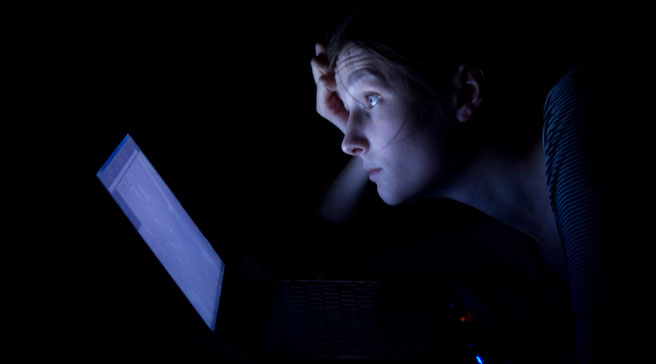In the midnight hour
We’ve all been there — lying awake at 4am worrying about things that seem almost inconsequential by the morning. The cause could be physical, says David Servan-Schreiber

Jackie has 100 things to do at work. She is also responsible for her three children, plus, she sometimes feels, her husband. Most of the time she seems to handle all this comfortably. The school run, the tennis lessons, birthday parties, the report that the boss wants signed off the next day. Her goals and her schedule come together in her head like the pieces of a jigsaw puzzle.
However, she sometimes wakes at 4am. As she lies there in the dark, she feels overwhelmed by everything she has to do. It’s all going to go wrong. How could she have taken so much on? She can’t cope. And what about all those unanswered emails? Will people think she can’t handle the pressure?
Then, as morning comes and she’s standing under the shower, she wonders how she could have got in such a state. She’s been handling all these pressures for years without too much trouble. She is back to her old self again, in control.
According to psychologists who specialise in describing our thought processes, we should normally experience around twice as many positive thoughts (‘I can manage that’, ‘I am a good person’) as negative thoughts (‘I’m a failure’, ‘no one ever helps me’). When we get too far away from this balance, we are in danger of falling into the state of exaggerated optimism that comes out as manic behaviour; or, at the other extreme, into a state of pessimism typical of depression.
We’re familiar with the idea that depression manifests itself as a tendency to indulge negative thoughts, but why do these so often strike in the middle of the night, and when we’re not even depressed?
We know that, left to itself, the brain starts to worry about the future. If not kept sufficiently busy, it clucks anxiously like a mother hen. This is partly why any activity that engages our attention and absorbs our thoughts makes us feel better. The middle of the night is exactly the moment when the brain is idle and too tired to engage in active thought, which is why it leaves the door open to our darkest fears. At Harvard, researchers studied variations in cardiac rhythm over the course of a 24-hour cycle.
During the night, the balance between the ‘sympathetic’ branch of the nervous system (which acts as an accelerator) and the ‘para-sympathetic’ branch (which acts as a brake) is temporarily disrupted. This seems to make us more vulnerable to physical disorders such as asthma or even heart attacks — both of which do, in fact, often occur at night. Since the state of our heart has a major effect on the part of the brain responsible for generating emotions, this temporary disruption might well explain those night-time anxiety attacks.
We cannot avoid the fluctuations in our bodies’ workings. We all have to live through these dark nights of the soul, stalked by irrational fears. But the knowledge that this rough patch is part of a physical pattern should help keep despair at bay — if you remember that when morning comes, things won’t seem so bad after all.








